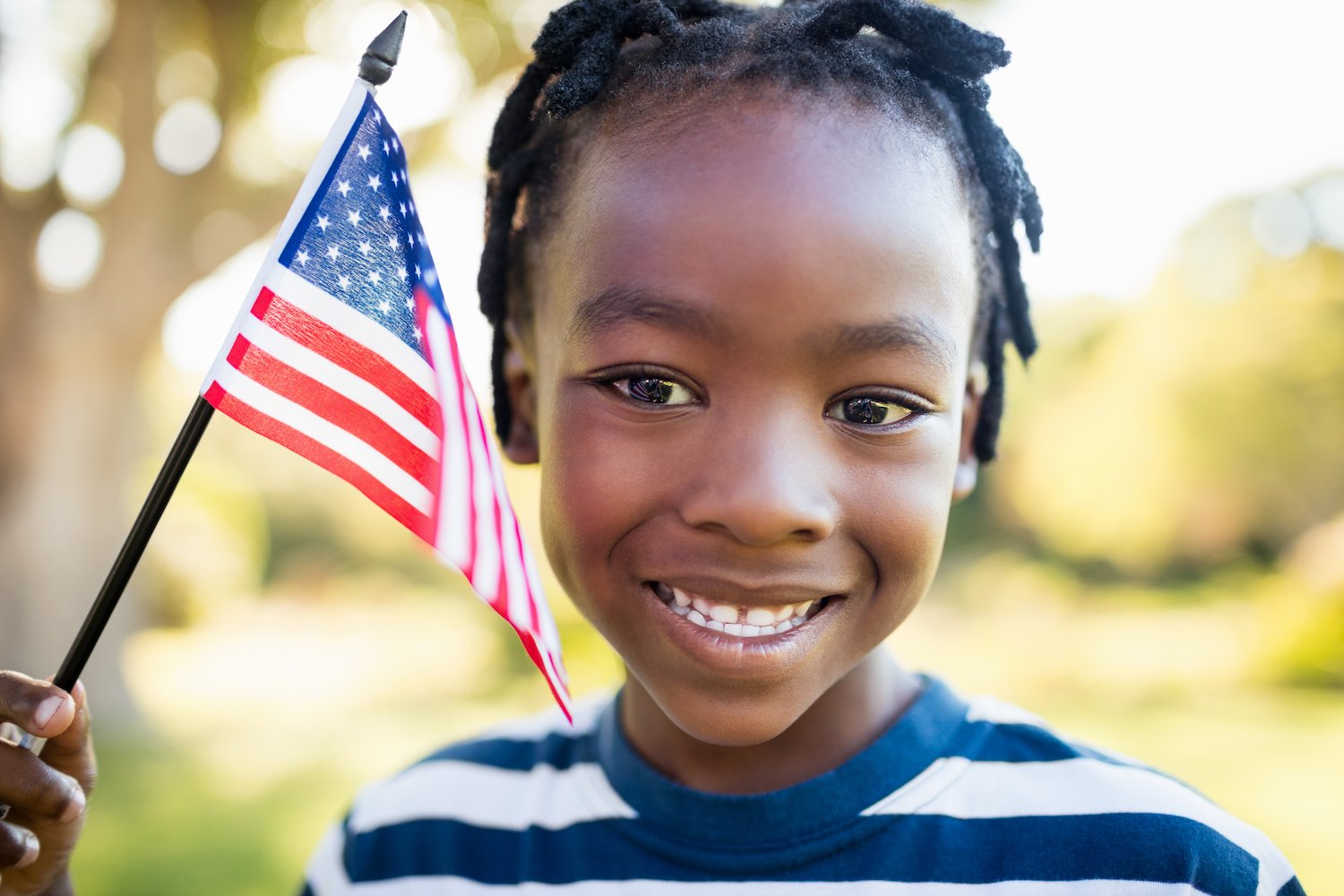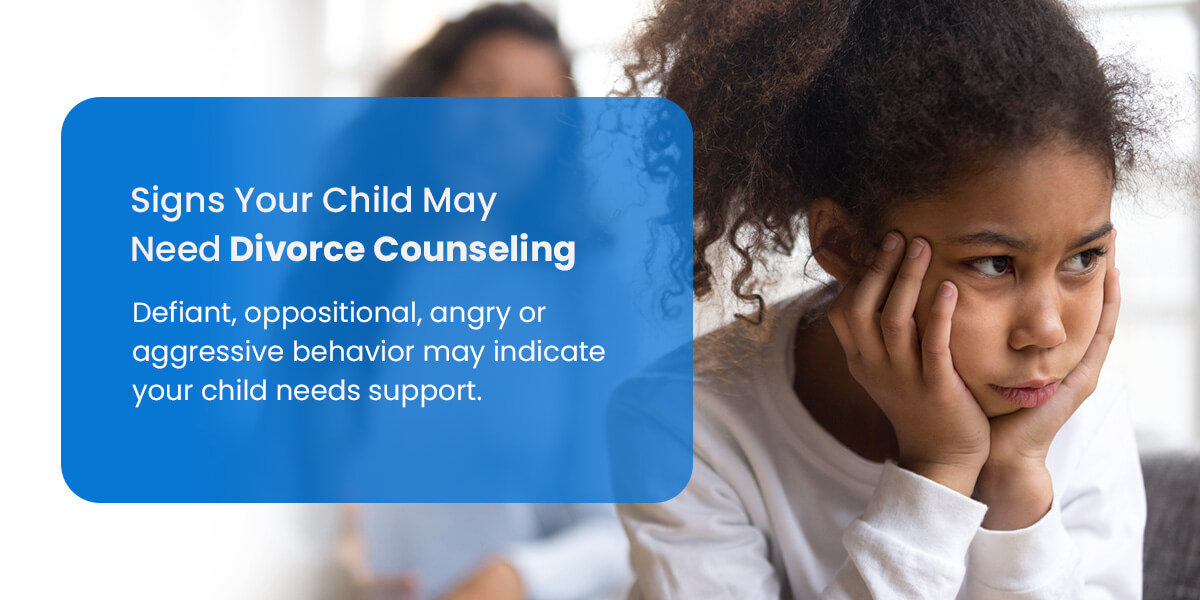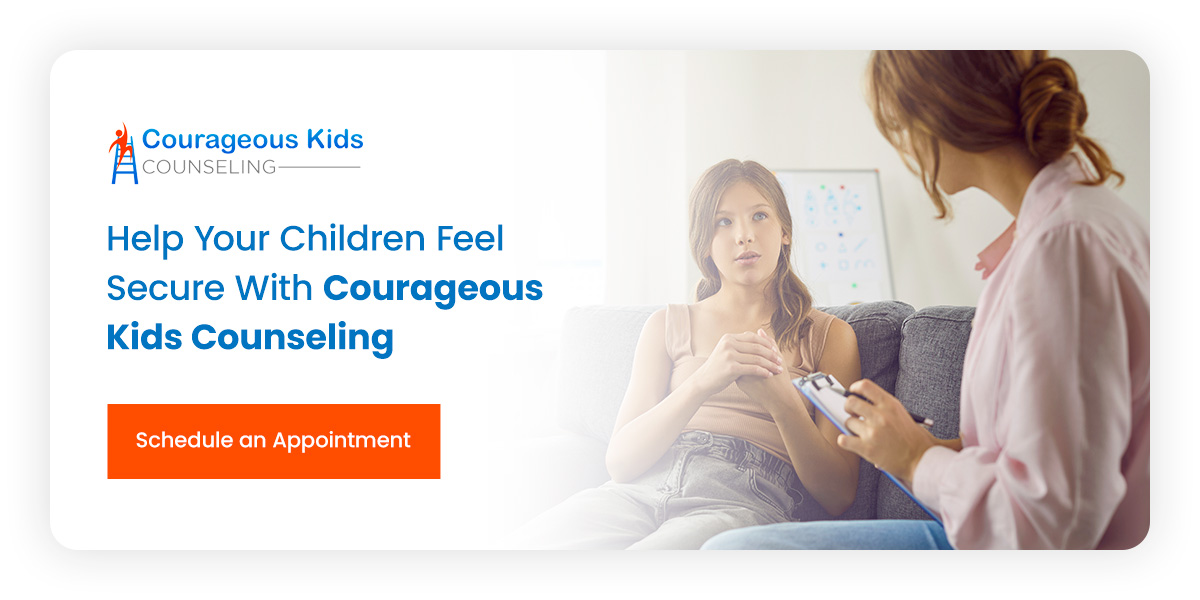Divorce Counseling for Kids
Therapy can help your child feel happy again.
Schedule an appointment today.

Many divorcing families include children, and parents getting a divorce often worry about the impact divorce can have on their child’s life. Although divorce is a challenging time for everyone involved, providing support in your child’s life is essential. Kids often feel confused or scared by this experience, and they may feel additional pressure or stress to comfort their parents while navigating their own emotions.
Children can often misinterpret what divorce means without a supportive conversation from their parents, which can create overwhelming feelings that can impact many facets of their lives. Divorce can affect your child’s physical and mental health, making it crucial to deliver the proper support during this time. Keep reading to understand how divorce can affect your child and how counseling can help them gain a sense of well-being.
How Does Divorce Affect Your Child's Life?
The effects of divorce on children can vary. While some kids may understand the change, others may struggle to transition. Your child is resilient, and the proper support and assistance can help them adjust appropriately rather than experience a crisis. Your child’s age and behaviors can affect how they respond to divorce, but there are several common effects, including:
- Poor academic performance: Navigating a changing family dynamic can be confusing and distracting for children. Daily interruptions can cause them to lose interest in school or struggle to focus on the information in front of them. The more distracted your child feels, the less likely they are to focus on academic work. You may see dropping grades or behaviors such as avoiding school, missing classes or forgetting to complete or turn in assignments.
- Difficulty responding to change: Divorce often means children must adapt to change more frequently. Whether families are moving to new locations, changing schools, leaving friends or witnessing a new parental figure coming into the picture, these adjustments can feel overwhelming. Your child may show difficulty adapting to these circumstances, which can affect their daily lives and relationships.
- Becoming emotionally sensitive: This time can cause many overwhelming feelings to arise, such as anxiety, confusion, anger and loss. Parental separation can increase risks for adjustment problems, including disruptive behaviors and depression. Long-lasting feelings can lead to struggles with commitment and maintaining relationships in adulthood.
- Feeling a deep sense of guilt: It’s common for kids to look for reasons why their family is separating. Thinking their parents no longer love one another or that they did something wrong can lead to feelings of guilt. These feelings can add to existing pressure and cause other problems, such as increased stress or depression.
- Increasing health problems: Children experiencing divorce are more likely to have physical and mental health issues. Physical problems include an increased risk of higher injury rates, asthma-related emergencies and hospitalization rates. Mental health challenges such as lower self-esteem, loneliness, sadness and anxiety can lead to severe conditions in the future.
- Showing loss of faith: Experiencing a divorce can cause some children to lose faith in relationships. Some kids may lack an interest in serious relationships or find it challenging to find someone they trust to spend time with. Furthermore, children of divorce are more likely to experience a divorce in adulthood.
- Participating in destructive behavior: Some kids exhibit behavioral changes during a divorce. Becoming withdrawn or participating in attention-seeking behavior is common, and children with parents who constantly fight are more likely to suffer from aggressive behavior, depression and poor self-esteem.

Signs Your Child May Need Divorce Counseling
Monitoring your child for signs that they need additional support is critical. Symptoms of distress can show in many ways, but you should be aware of sudden or significant shifts in behaviors or attitudes. Defiant, oppositional, angry or aggressive behavior may indicate your child needs support. Additionally, regressions or a sudden lack of developmental accomplishments can highlight that your child is struggling with this change.
Monitor your child’s words, especially when they discuss themselves or the separation. Negative self-talk, low self-esteem or loss of interest could point to a need for professional help. Watch for additional negative behaviors such as attempting to inflict physical harm to themselves or others, experimenting with mood-altering substances, or discussing feelings of guilt, grief, anxiety or depression. If you notice these changes in your child, contact a professional for divorce counseling to help your child find the support they need.
Children's Divorce Counseling Can Help Them Succeed
Child therapy offers a wide range of benefits for children experiencing overwhelming emotions and challenging situations. Seeking divorce counseling for your child can empower them to:
- Find support: Professionals can encourage children to find their strengths while monitoring goal progression. As your child overcomes challenges, counselors can provide the recognition and support they need to recognize and embrace resilience.
- Process feelings: Processing and understanding emotions can help children perform better and avoid feeling alone. Divorce counseling can help your child manage low self-esteem, grief, stress, anger, worry and sadness.
- Develop coping skills: Finding healthy coping skills is vital for preventing destructive behaviors or relying or negative habits to distract from overwhelming feelings and situations. Divorce counseling can empower your child to gain perspective and learn how to handle future situations. Exercises and activities can encourage better listening and teach patience, self-control practices and direction following.
- Learn how to communicate: Although some children may not have the vocabulary to understand divorce or their situation, they are often eager to learn new information. Professionals can teach the right words and help your child explain their feelings and their situation so you can better accommodate their needs.
- Understand when to ask for help: Asking for help is one of the best ways to maintain relationships and practice feeling management. Kid’s counseling for divorce can encourage your child to recognize the value of asking for help to overcome large obstacles.
Schedule a Call With Courageous Kids Counseling
At Courageous Kids Counseling, we understand the importance of supporting your child through challenging times. Children may struggle to understand divorce and what it means for them or what to expect in the future. These feelings can become overwhelming and lead to negative behaviors that impact many facets of your child’s life. When your child faces these challenges, you can rely on our team to support them.
We use an effective approach to reach positive results in three months or less. We can steer your child onto a compassionate and empathetic journey to discover helpful solutions and gain positive insights. We help children reach new heights and want to uncover what your child needs to succeed. Courageous Kids Counseling understands how to help your child, and our approach can make a significant difference in a short amount of time. Schedule an appointment with our team to take the first step for your child.


